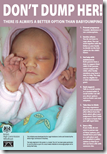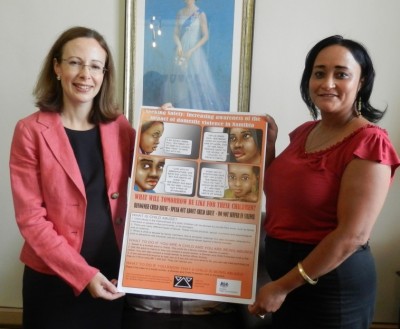16th October 2013 Windhoek, Namibia
Taking a Stand: British support for Human Rights activities in Namibia
16 October marks international Blog Action Day which has a “Human Rights” theme this year.
The British High Commission in Windhoek has a proud history of supporting local organisations focusing on human rights issues in Namibia. Since my own arrival here in mid 2011, I have particularly enjoyed working with the Legal Assistance Centre (LAC), a non government public interest law organisation, whose main objective is to protect the human rights of all Namibians and make the country’s laws accessible to those with the least access to help maintain a human rights culture in Namibia.
So today’s blog provides a timely opportunity to highlight BHC Windhoek’s upcoming collaboration with the LAC, a new project being run in Lüderitz which aims to strengthen community capacity to address gender and family-law issues. The small southern coastal town of Lüderitz has been targeted by the LAC’s Gender Division as the organisation’s recent study – “Seeking Safety” – ranks Lüderitz’s court 7th out of the country’s 31 courts where protection order cases were opened between 2004 and 2006.
Domestic and gender-based violence (GBV) remain major problems in Namibia. Namibia’s Minister of Gender Equality and Child Welfare, Rosalina Nghidinwa, announced yesterday that over 10,000 cases of gender-based violence are expected to be reported by the end of this year. There were more than 7,824 GBV cases reported in 2011 and 8,408 in 2012, which is high for a national population of just 2.1m. The minister noted that this June alone there were 869 cases of GBV reported.
Namibia has strong gender and the family protection laws but many people, especially in remote areas, are still not aware of their provisions or face difficulties in accessing service provision, meaning they do not receive the help they need when they most need it. Local social workers in Lüderitz report that the town’s residents, the “Buchter” as they are commonly known, have little access to information on how to respond to family violence or training on gender related issues.
LAC’s project will provide training on all gender laws to the community and service providers, and help promote awareness of legal rights and access to legal redress. The training will be conducted by the LAC between October 2013 and March 2014 and consist of a mixture of presentations, activities and participatory learning techniques.
The British High Commission is also proud to have supported the LAC’s recent anti-baby dumping initiative and a separate campaign to raise awareness about child abuse and domestic violence.


To alert young mothers to alternative options to abandoning their babies – often to die in remote places – the LAC created a series of posters with advice on what to do if you fall pregnant and do not want the child. Each of the posters bears the photo of a baby whose parents support the drive to prevent baby dumping, which is a tragic problem in Namibia.
The photos came from staff working at the LAC, the British High Commission, and from members of the community. The project concept cleverly embraced new digital media with electronic versions of the individual posters sent to parents who then circulated them amongst friends and family to spread the message throughout Namibia in a personalised way that standard means of communication could not deliver.
Each poster was accompanied by a Facebook banner to increase the exposure of the message. In line with the LAC, we hope that this clever social media initiative goes some way in helping to prevent the incidences of baby dumping in Namibia.
Last year we also supported LAC’s “Protecting Children Affected by Domestic Violence” project after learning that more than one out of five victims of domestic violence in Namibia said their children had been harmed or threatened by their abuser.

For every victim of domestic violence, six other people are affected and four are children. As part of the “Seeking Safety” campaign, the project produced posters focusing on increasing awareness of the impact of this type of domestic violence in Namibia. They describe what constitutes child abuse and provide advice on what a child should do if they are being abused.
Lots of great campaigns to tackle what remains a blight on the lives of the people of the Land of the Brave. We look forward to continuing our support of such creative and valuable human rights initiatives and to working together with such active local Namibian groups to help tackle human rights challenges on the ground.